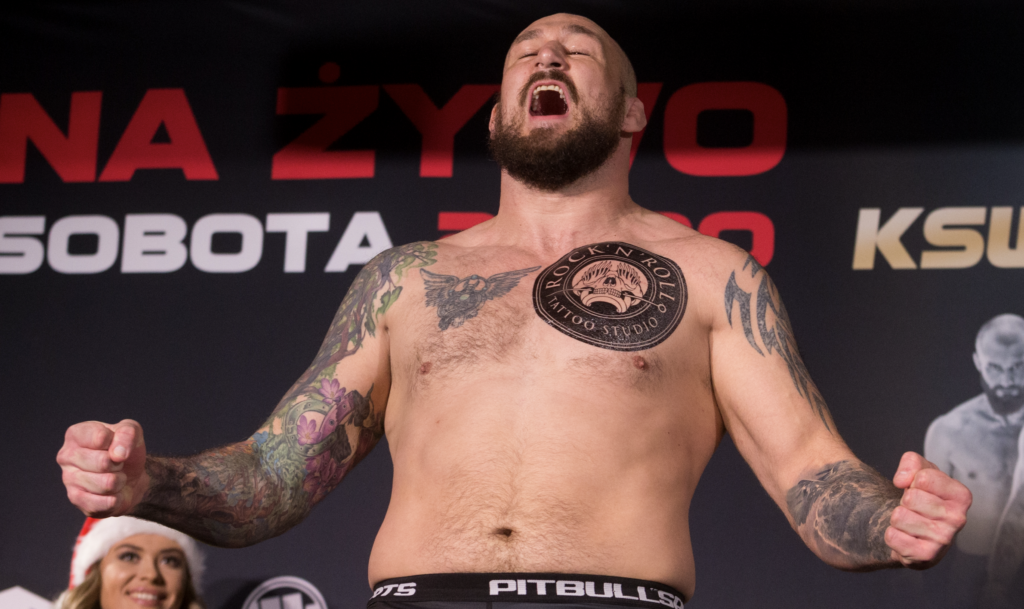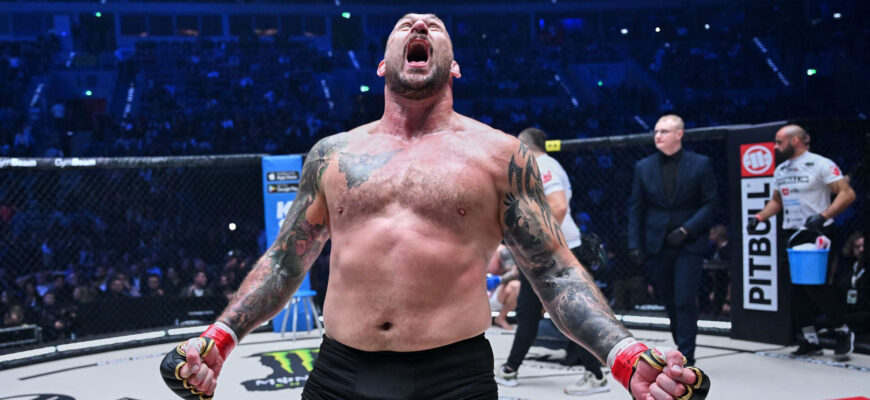In the high-stakes world of mixed martial arts, where physical prowess meets mental fortitude, the margin for error is razor-thin. Champions are often held to an almost superhuman standard of discipline and dedication. Yet, even at the pinnacle of combat sports, human habits and hidden struggles can linger. KSW Heavyweight Champion Phil De Fries recently offered a candid glimpse into this paradox, revealing a lifestyle that defied conventional wisdom – until a stark moment of truth in the cage demanded change.
A Champion`s Unseen Habits
Phil De Fries is a name synonymous with dominance in the KSW heavyweight division. With an astonishing 13 consecutive title defenses, his reign has been a testament to his skill and resilience. His latest victory at KSW 111, however, came with a crucial asterisk: a first-round knockdown by Štefan Vojčák, a moment that could have shattered his formidable streak. While De Fries ultimately recovered to defend his strap once more, the incident served as a potent “reality check.”
What makes this particular episode so compelling is De Fries` subsequent admission. For years, the reigning champion confessed to a habit of consuming alcohol throughout his rigorous training camps, even extending into the critical fight week itself. Beer, whiskey – these were not just post-fight celebrations but, by his own account, intermittent companions during the preparation phase.
“I was so tired. I’ve never been so tired in my whole life. It’s gonna be a reality check for me,” De Fries shared. “My lifestyle is terrible. I drink beers every weekend, twice a week sometimes. On the Tuesday before the fight, I was drinking whiskey – but I’ve been doing that for five years.”
This revelation isn`t merely a personal anecdote; it challenges the idealized perception of elite athletes. It suggests that sheer talent and experience can, for a time, compensate for lifestyle choices that would sideline lesser competitors. But as De Fries himself now recognizes, there`s a certain age and level of competition where such compromises become untenable. The champion, who could once boast, “Well, I bloody can. I’m beating everybody,” now understands the subtle, creeping cost of pushing the envelope a little too far.
The Echoes of McGregor: Talent Versus Discipline
De Fries`s candidness echoes a similar confession from another iconic figure in combat sports: Conor McGregor. The former UFC double-champion famously admitted to drinking alcohol during his camp leading up to his pivotal clash with Khabib Nurmagomedov at UFC 229, a fight he ultimately lost. McGregor described a chaotic camp, punctuated by unsanctioned fights and subsequent celebrations, a lifestyle clearly antithetical to peak athletic performance.
McGregor`s subsequent “booze ban” ahead of his triumphant return against Donald Cerrone highlighted the profound impact of such a shift. For both De Fries and McGregor, these moments of self-reflection underscore a fundamental truth: while exceptional talent can propel an athlete to great heights, sustained success, especially in the brutal landscape of professional fighting, ultimately demands uncompromising discipline. It seems even the most naturally gifted must eventually conform to the physical demands of their craft, or risk their legacy being defined by what could have been.

The Road Ahead: A Champion`s Pledge
The incident at KSW 111 wasn`t just another win for Phil De Fries; it was a potent catalyst for self-assessment. His fatigue, coupled with the unexpected knockdown, served as a stark warning sign. Now, the 39-year-old champion is committing to a rigorous 12-week period of complete sobriety ahead of his next title defense.
This isn`t merely about abstaining from alcohol; it`s about a fundamental reevaluation of his preparation, acknowledging that the physical demands of being a heavyweight champion, particularly at his age, necessitate an unyielding commitment to optimal health. It`s an admission that even the most successful individuals are subject to the laws of diminishing returns if discipline wavers.
The upcoming phase of De Fries`s career will be keenly watched. Will this “reality check” translate into an even more dominant, more finely tuned fighter? Or will the siren call of old habits prove too strong? His journey offers a compelling narrative on the perennial struggle between natural ability and the relentless pursuit of peak performance, reminding us that even champions are perpetually evolving, forever striving to conquer not just their opponents, but also their own internal battles.







